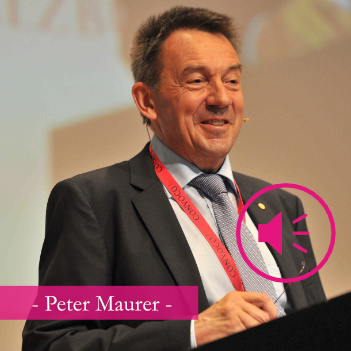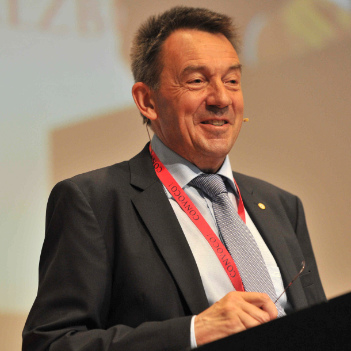
In our new CONVOCO! Podcast Corinne M. Flick speaks with Peter Maurer, President of the ICRC (International Committee of the Red Cross), about:
What are the Challenges of Humanitarian Work Today?
This conversation took place before the escalation in the Ukraine. Our thoughts are with the Ukrainian people. It is more important than ever to work for principles such as freedom, peace and equality.
Here’s what he said:
We have seen an explosion in the number of conflicts involving ten or more parties … Last year in the 40 biggest areas of intervention of the ICRC, we counted more than 600 armed non-state groups … In addition, there’s fragmentation in the international community because we no longer have two blocs but instead competition between global, regional, and local powers.
There is a trend to no longer look at humanitarianism as a legally enshrined and accepted principle of action, rather the delivery of aid is becoming increasingly politicized and made conditional on negotiation.
In Europe, we are concerned about the situation in Ukraine*, and we are concerned about other violent events and the remnants of previous wars. We still have thousands of missing people in the Balkans, in Georgia, in Central Asia. There is a surprising amount of instability. *The conversation was recorded prior to the recent escalation of events in Ukraine.
Humanitarian needs today are driven not only by conflict and natural disaster, but also by crumbling economies … Lebanon is in need of humanitarian assistance not because of war but because there is a financial, economic, and political crisis.
The main problem today is not the wounded soldier … Today, it’s the disruption of lives and livelihoods because of a changing climate. We need to help people adapt.
It is important not to make people dependent on handouts and humanitarian work. There needs to be a philosophy of value creation and self-responsibility in the private sector.
Humanitarians have always had an ambivalent relationship to value concepts like inequality … There has been a recognition over the last couple of years that violence and conflict are driven in a very substantive way by inequality, but humanitarians often withdraw into the cozy corner of being neutral, impartial, independent, and non-political. Equality and inequality demand a political stand.
In humanitarian and ethical terms it’s unacceptable that thousands are drowning in the Mediterranean and in other seas around Europe.
Europe is often perceived as expressing double standards … There is a lot of resentment, e.g. for Europe’s economic strength or its “Fortress Europe” approach … I think there is a point here and a need for a critical look at how Europe wants to portray itself in the world.

